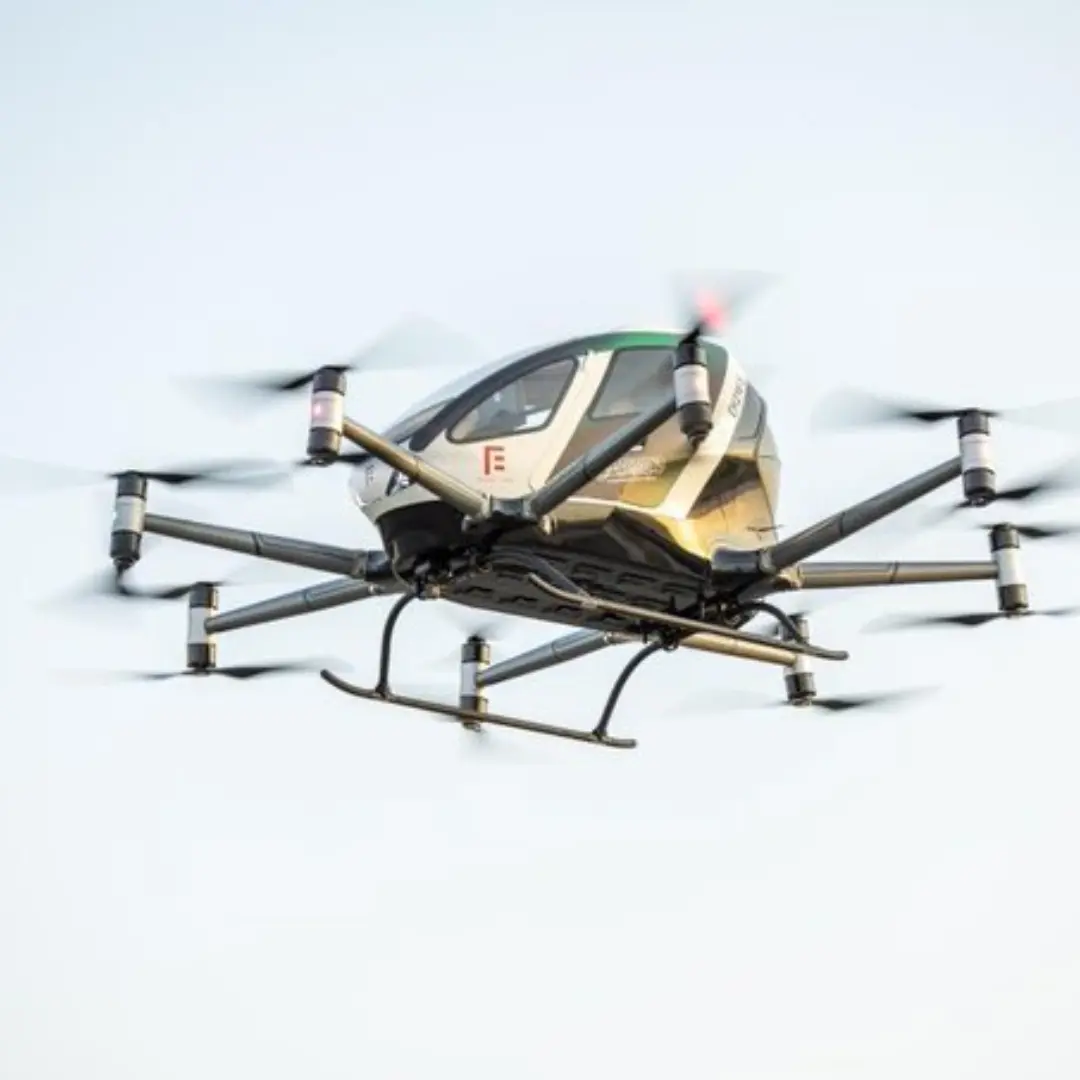Saudi Arabia’s trial of an autonomous air taxi for Hajj marks a groundbreaking advancement in transportation technology, aimed at revolutionizing the experience for pilgrims embarking on the sacred journey to Mecca. The Kingdom’s initiative underscores its commitment to leveraging cutting-edge innovations to enhance efficiency, convenience, and safety during one of the world’s largest annual religious gatherings.
The autonomous air taxi, a futuristic mode of transportation, holds the promise of transforming Hajj logistics by offering swift and reliable aerial transport between key pilgrimage sites. Traditional ground transportation often faces challenges such as congestion and delays due to the sheer volume of pilgrims traveling to and from Mecca. By introducing autonomous air taxis, Saudi Arabia seeks to mitigate these challenges, providing pilgrims with a seamless and efficient travel option that bypasses road congestion.
The trial represents a significant step forward in Saudi Arabia’s Vision 2030 initiative, which aims to diversify the economy and enhance the Kingdom’s technological capabilities. By investing in autonomous transport solutions, Saudi Arabia not only seeks to improve the pilgrim experience but also to position itself as a global leader in transportation innovation.
The autonomous air taxi trial is poised to offer several advantages over traditional transportation methods. These include reduced travel times, enhanced safety features, and minimal environmental impact compared to conventional modes of transport. Pilgrims can potentially benefit from faster travel between Hajj sites, allowing them to focus more on the spiritual aspects of their journey rather than logistical concerns.
Moreover, the introduction of autonomous air taxis aligns with broader efforts to modernize Saudi Arabia’s infrastructure and transportation networks. By integrating advanced technologies such as artificial intelligence and autonomous systems, the Kingdom aims to set new standards in mobility and accessibility for large-scale events like Hajj.
The successful implementation of autonomous air taxis during Hajj could pave the way for broader applications across Saudi Arabia’s transportation sector. Beyond the pilgrimage season, these innovations could potentially be adapted for urban mobility, emergency response, and other logistical challenges.
In conclusion, Saudi Arabia’s trial of an autonomous air taxi for Hajj represents a pioneering initiative in transportation innovation. By embracing cutting-edge technology, the Kingdom aims to elevate the pilgrim experience, enhance logistical efficiency, and showcase its leadership in adopting transformative solutions that benefit both residents and visitors alike. As the trial progresses, it holds the promise of reshaping not only the Hajj experience but also the future of mobility in Saudi Arabia and beyond.









